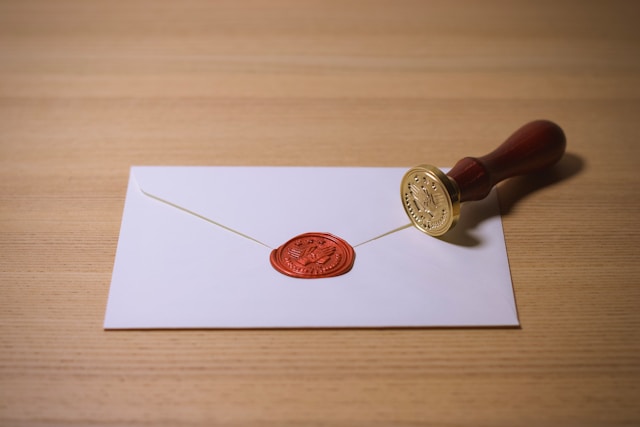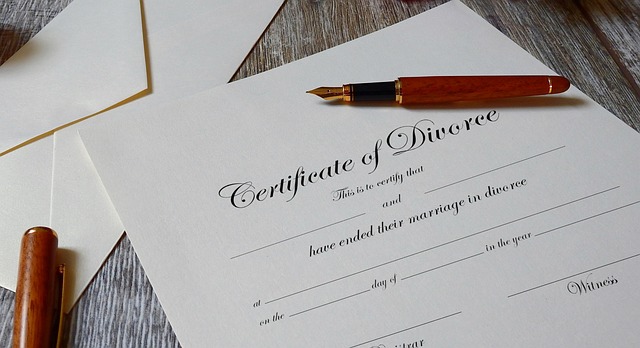Rapid Translate Team
The two major methods of verifying public documents and vital records are apostille and notarization. Though both services have similar purposes, there are vital differences in the notarization and apostille processes. As a result, people ask tons of questions about apostille vs notary services. These questions range from using both services to their importance, similarities, differences, and when to use them. Read this blog post if you’re equally curious to discover the answers. We’ll teach you all you need to know about notary vs. apostille.

Table of Contents
What Is Apostille vs Notary?
Apostille and notary are two terms that refer to distinct processes involved in authenticating and verifying documents before formal use. Getting a document apostilled or notarized has a similar goal of proving its credibility. Hence, most people with surface knowledge of the terms find it difficult to identify each process.
To do this successfully, you must understand both terms in-depth. An apostille is a certificate verifying the origin and originality of documents for use in foreign countries. You don’t need an apostille for all foreign countries, only those in the 1961 Hague Apostille Convention.
The Hague Convention is an international treaty between 91 countries that sets the modalities for verifying formal documents. This process influences the legalization and acceptance of foreign documents in member countries.
The processing times for apostilles depend on the issuing body. It can take a few hours, some business days, or weeks. Likewise, the time for notarization varies. Depending on the urgency of your work, you can opt for a rush notary service or deliberate with the notary.
A notary is a governmental-appointed public official who verifies identities, confirms that documents are genuine, and prevents fraud. Notarization plays the same role as an apostille in countries that don’t belong to the Hague Treaty. However, notaries can only work within their jurisdiction.
They can interrogate signatories to confirm their identity and watch as they sign contracts, affidavits, and important documents. They then add a stamp, signature, and seal to verify documents. People often use notarized documents within the same country.

Understanding the Format of a Notarized and Apostilled Document
Notarization and apostille follow different formats. You might wonder how the issuing officials or authorities arrange these authenticators in the U.S. and foreign countries. A standard notarization contains a notary’s block, a section that states the notary’s details.
Sometimes, the notary’s commission expiration date is also in this section. Additionally, there’s a brief acknowledgment and a confirmation of verification. It also contains the date of the notarization and notary’s signature. Note that some notarizations are an acknowledgment, jurat, or signature witnessing.
The format of an apostille may vary depending on the issuing country. However, it is generally issued as a certificate on a sheet of paper that is different from the official documents.
The standard format of an apostille begins with the header, which is the word “apostille.” The next information is the name of the country issuing the apostille. Each apostille has a unique sequence of codes known as the serial number, differentiating it from all others.
After the codes comes the date of issuance, which is written in the issuer’s format. The document also contains the signatory’s name and official capacity or position.
The certificate also states the name of the issuing authority and describes the document that the apostille authenticates. Finally, it has the issuing authority’s public seal, signature, and contact information. Note that if you translate an apostille, the format will remain unchanged.

Differences Between Notary vs Apostille
Apostille and notary services are language solutions for foreign documents. Though both services are language solutions, they differ in various ways. One major difference is the nature of the solutions both services offer.
An apostille verifies a document’s origin and confirms its legality. However, a notary authenticates a document by confirming its signatures are correct. A notary public prevents this by serving as an impartial witness to the signing of documents.
Apart from witnessing the act, the notary first confirms the identity of the signatories by analyzing their identity cards. The notary confirms that the signatories understand the document’s content and are signing willfully and not under duress.
Another difference between apostille and notarization services is their scope of use. An Apostille is more suitable for international validation as it’s typically for member countries of the Hague Apostille Convention. Although a notarized document can also serve an international purpose, it’s best for local verification procedures.
Notarization doesn’t directly prove legality. Nevertheless, people use it for legal documents, affidavits, and contracts between individuals and entities. On the other hand, an apostille covers public records issued by government organizations. Examples of such documents are death, marriage, and birth certificates.
Another difference is the format of both language solutions. An apostille is usually a certificate separate from the document. It’s similar to a certified translation that has a separate certification statement.
On the other hand, notarization doesn’t require a separate document. Hence, the notary signs the original document to validate it and places a seal or stamp on it.

When To Use an Apostille vs Notary Public
You might wonder when to use an apostille and when to opt for a notary. To decipher this, you must understand the purpose of both services. On the one hand, an apostille confirms a document’s origin, legality, and validity.
It attests that the appropriate authority issues a public document alongside the document’s validity period. An apostille is useful in foreign international dealings. Therefore, you can get an apostille for a government-issued public record.
Below are four categories of documents requiring an apostille for international use:
- Visa and immigration documents, including passport translations, medical certificates, proof of income, and affidavits of support.
- International legal documents include court judgments, divorces, marriage certificates, wills and probates, adoption papers, and real estate documents.
- Foreign business transaction documents like articles of incorporation, business licenses, patents, and trademark paperwork.
- Foreign study program documents include transcripts, acceptance letters, language proficiency results, original diplomas, and study agreements.
On the other hand, notarization confirms identities and verifies signatures to counteract fraudulent acts. Hence, it is necessary for any document involving signatories.
Document notarization creates trust and proves industry and legal compliance. Therefore, individuals can submit notarized copies of documents to agencies and institutions at home and abroad.
For practical examples of when to use a notary, below are documents you can notarize:
- Declaration of assets, income, custody, and the like.
- Affidavit of residency, citizenship, etc.
- Name change documents.
- Marriage, divorce, birth and death certificates.
Note that getting an apostille or a notarization depends on where you’ll use the document. If you’re using it abroad, it’s best to get an apostille. But if it’s for local use, you can opt for notarization.
Use Rapid Translate To Notarize Your Documents and Prepare Them for Apostille
This article covers the definition of an apostille and a notary, their importance, differences, and when to use them. However, we haven’t told you where to get these services for your documents.
If you’re looking for where to get language solutions, the most reliable choice is to patronize a translation agency. While you could patronize any, we’re sure you’ll enjoy using Rapid Translate.
We offer the best language experts, premium services, and affordable rates. Our staff consists of translators with different specializations and notaries from different jurisdictions.
In view of the apostille vs notary topic, we’re a non-governmental entity and lack the right to apostille documents. However, we can prepare your document through translation, certification, or notarization.
We’ll also help you find the right authorities to apostille your documents. Try Rapid Translate and enjoy the most reliable language services anywhere, anytime!

FAQ
If you’re still having trouble choosing between an apostille and a notary, the answers to some questions below may help.
Who can issue an apostille in the U.S.?
The Department of State or the Secretary of State can apostille vital records in the U.S. In some cases, U.S. embassies or foreign consulates can apostille documents for individuals to use in the host country.
What is the purpose of the apostille?
The primary purpose of an apostille is to authenticate a document. This process convinces member countries of the 1961 Hague Convention of a document’s originality. Therefore, an apostille confirms that a document is real and not fabricated.
Can a notary apostille a document?
Notary publics cannot apostille a document as it isn’t part of their functions. A notary can only perform notarization by stamping and signing a document. Sometimes, this is a preliminary step to getting an apostille, but it isn’t always necessary.





